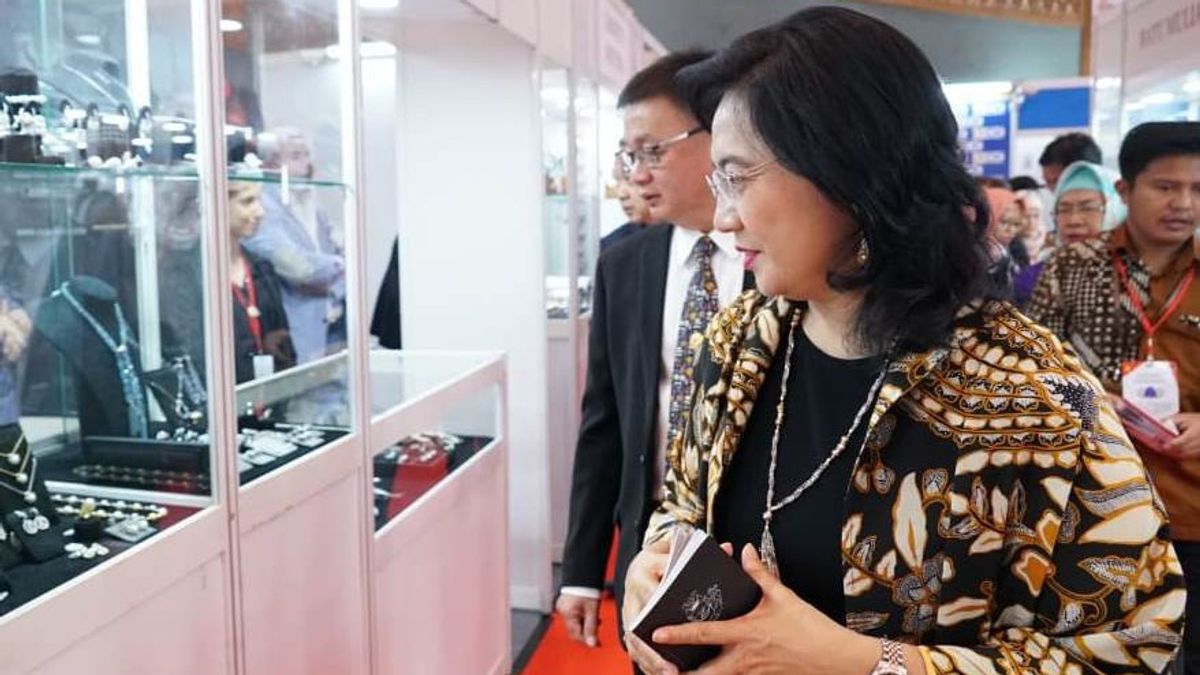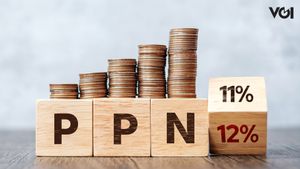JAKARTA - The corona virus pandemic or COVID-19 in Indonesia is increasingly widespread. Along with this, negative impacts began to spread to various sectors. The Ministry of Industry seeks to accommodate various inputs from the industrial sector in dealing with the impact of the COVID-19 pandemic in Indonesia.
The small industrial sector is one of the most affected by the current COVID-19 pandemic. The Directorate General of Small, Medium and Miscellaneous Industries (IKMA) of the Ministry of Industry also investigates the conditions of the small and medium industrial sector (IKM) which are still operating, one of which is the jewelry industry.
The Director General of IKMA at the Ministry of Industry Gati Wibawaningsih said, based on data and information from the Indonesian Jewelry Manufacturers Association (APPI), there was a decline in production due to reduced market demand, both local and export.
Since March 2020, continued Gati, export activities of jewelry products from Indonesia have stopped completely. This is because the destination country has imposed a lockdown or regional quarantine. Office closures are also projected to occur until mid-April 2020.
"Some order commitments for buyers from the United States are rescheduled for delivery until June. Some even arrive until September," he said, through a written statement received by VOI, in Jakarta, Wednesday, April 8.
As for the local market, Gati said, sales were close to zero. This is due to the high price of gold that has exceeded Rp. 800 thousand per gram and some gold traders have also chosen to close their shops.
According to Gati, 30 percent to 50 percent of employees in the jewelry industry who are members of APPI are still working. While the rest were closed for two weeks while waiting for the next situation.
As for the jewelry industry factories that are still operating, they have been advised to implement health protocols, including providing a minimum working distance of one meter between one worker and another. In addition, the body temperature of each employee who enters the factory is checked.
In addition, said Gati, employees are also required to wear masks in the factory environment. To maintain the immunity of its workers, the company also provides healthy food and vitamins to every employee who is still working on the production process.
In increasing the competitiveness of jewelry IKM, the Ministry of Industry has previously made several strategic efforts, including training and mentoring for expert designers, as well as machine and equipment assistance, especially in the Technical Service Unit (UPT) which can be utilized by IKM at the center.
Furthermore, promotion and marketing through domestic and foreign exhibitions, improving human resource skills through production education and training, and improving the business climate related to regulations in the fiscal sector to facilitate import of raw materials.
"The hope is that these efforts can have a positive impact, both for the jewelery industry and society in general, through economic growth and employment which leads to an increase in the welfare of society at large," he said.
Based on the Ministry of Industry's records, in 2018, the export value of jewelry reached US $ 2.05 billion. Meanwhile, from January to August 2019, it had penetrated up to US $ 1.47 billion, up from the same period in the previous year of US $ 1.3 billion.
Gati explained, the export destination countries for national jewelry products are still dominated by Singapore, Switzerland, Hong Kong, the United States, the United Arab Emirates and Italy, which account for 97 percent of total exports.
The English, Chinese, Japanese, Arabic, and French versions are automatically generated by the AI. So there may still be inaccuracies in translating, please always see Indonesian as our main language. (system supported by DigitalSiber.id)













